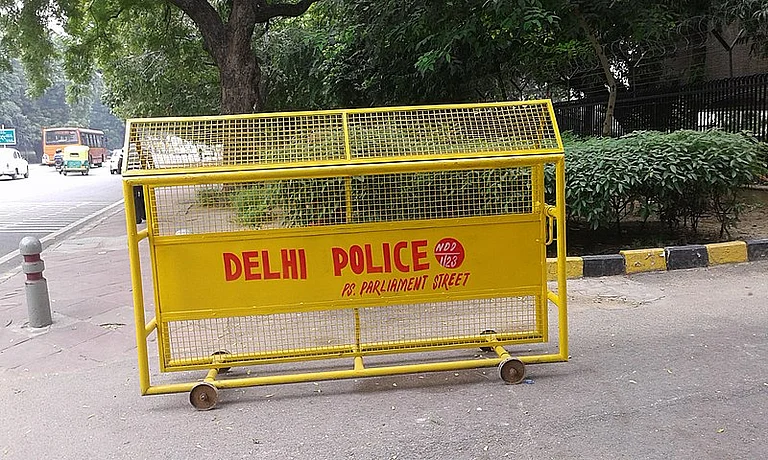Hitchens—who had quite a reputation as an anarchist during his Oxford days, with a gift for flamboyant, irreverent speeches—has a Channel Four documentary on Mother Teresa behind him. In the book, released on October 26, he has incorporated some of the issues raised by viewers in a televised discussion that followed the programme.
Hitchens’ chargesheet: Mother Teresa’s concern for the poor is questionable. The saint, who claims to be beyond politics, is in fact advocating a fundamentalist Christian religious/political agenda. She hobnobs with crooks and frauds for oblique and at times, explicit, mutual benefit. Worse still, she’s guilty of financial impropriety.
Is this a Leftist attack? "No, it’s a secular perspective which informs the critique," says broadcaster and writer Tariq Ali, who advocates that Indians should adopt a more critical perspective towards Mother Teresa.
Hitchens begins his critique with her visit to Haiti in January 1981, citing the film footage and published material as evidence. Mother Teresa is quoted as saying that while she had met kings and presidents aplenty, she had "never seen the poor being so familiar with their head of state as they were with her (Michele Duvalier, the celebrated bride of the first citizen of Haiti). It was a beautiful lesson for me".
Writes Hitchens: "In return for these and other favours, Mother Teresa was awarded the Haitian Legion d’honneur. And her simple testimony, in warm encomiums for the ruling couple, was shown on state-run television every night for at least a week."
"No protest against this footage is known to have been registered by Mother Teresa (who has ways of making her views widely available) between the time of the award and the time when Haitian people became so ‘familiar’ with Jean-Claude and Michele that the couple had barely enough time to stuff their luggage with the National Treasury before fleeing for ever to the French Riviera," he adds. He cites many other cases where Mother Teresa has stood side by side with despots or people with tainted reputation and exhorted the suffering people to "forgive" their tormentors.
He says she posed for a picture with controversial Californian millionaire John-Roger after having accepted a $10,000 cheque from him. The destitute of Calcutta form the backdrop to the picture. The photograph, contends Hitchens, is fake: the backdrop was added later.
John-Roger heads the Movement of Spiritual Inner Awareness (MSIA) which has been repeatedly exposed in print as "corrupt and fanatical". The Cult Awareness Network lists MSIA as "highly dangerous". Hitchens’ case is that Mother Teresa has routinely lent her lustre to dubious people and dubious causes.
As for her concern for the poor, here is one of Mother Teresa’s quotes proferred in The Missionary Position: "I think it is very beautiful for the poor to accept their lot, to share their passion of Christ. I think the world is being much helped by the suffering of poor people."
A number of volunteers who have worked with Mother Teresa in Calcutta—all of them identified by name—are quoted as saying that Mother Teresa’s care centres don’t offer them adequate medical care or don’t even rush them to hospitals when the situation so demands. Instead, Mother Teresa’s philosophy is to leave them to be cared for by God (though, she herself, has no qualms about getting modern medical treatment for herself).
Mother Teresa, while being filmed, described an encounter with a cancer patient. She told him: "You are suffering like Christ on the cross. So Jesus must be kissing you." Unselfconsciously, she also related the sufferer’s reply: "Then please tell him to stop kissing me." For Mother Teresa, says Hitchens, religion takes precedence over the poor.
The author also goes to great lengths to demonstrate how Mother Teresa is perpetually highlighting the Catholic agenda against abortion and any form of contraception. Example: a quote from her speech after receiving the Nobel Prize in 1979—"Today, abortion is the worst evil and greatest enemy of peace."
Hitchens’ savage critique is most credible while describing Mother Teresa’s relationship with Charles Keating. Keating, now serving a 10-year sentence for his part in one of the greatest frauds in American history (the savings and loans scandal), had at the height of his success donated $250,000 to Mother Teresa. He had also made good use of his association with her, says Hitchens. Even if one assumes that Keating’s dealings were not known to Mother Teresa, her conduct in seeking a pardon for him is questionable. In 1992, when Keating was being tried by Judge Lance Ito (who recently presided over the O.J. Simpson trial), Mother Teresa wrote to the court seeking clemency. Disclaiming any knowledge of Keating’s work or business, Mother Teresa referred to him as "always...kind and generous to God’s poor."
She wrote: "Whenever someone asks me to speak to a judge, I always tell them the same thing. I ask them to pray, to look into their heart and to do what Jesus would do in that circumstance. And this is what I am asking of you, your honour."
The Deputy District Attorney, in his reply, explained that Keating was "convicted of defrauding 17 individuals of more than $900,000. These 17 persons were representative of 1,700 individuals from whom Mr Keating stole $252,000,000".
The attorney, who quoted from the Bible at length, concluded: "I submit that Jesus would promptly and unhesitatingly return the stolen property to its rightful owners. You should do the same. You have been given money by Mr Keating that he has been convicted of stealing by fraud.... Do not keep the money."
Mother Teresa, says Hitchens, has so far not responded to the letter. Why not? This question, far more than others, begs an answer. An answer from Mother Teresa.


























